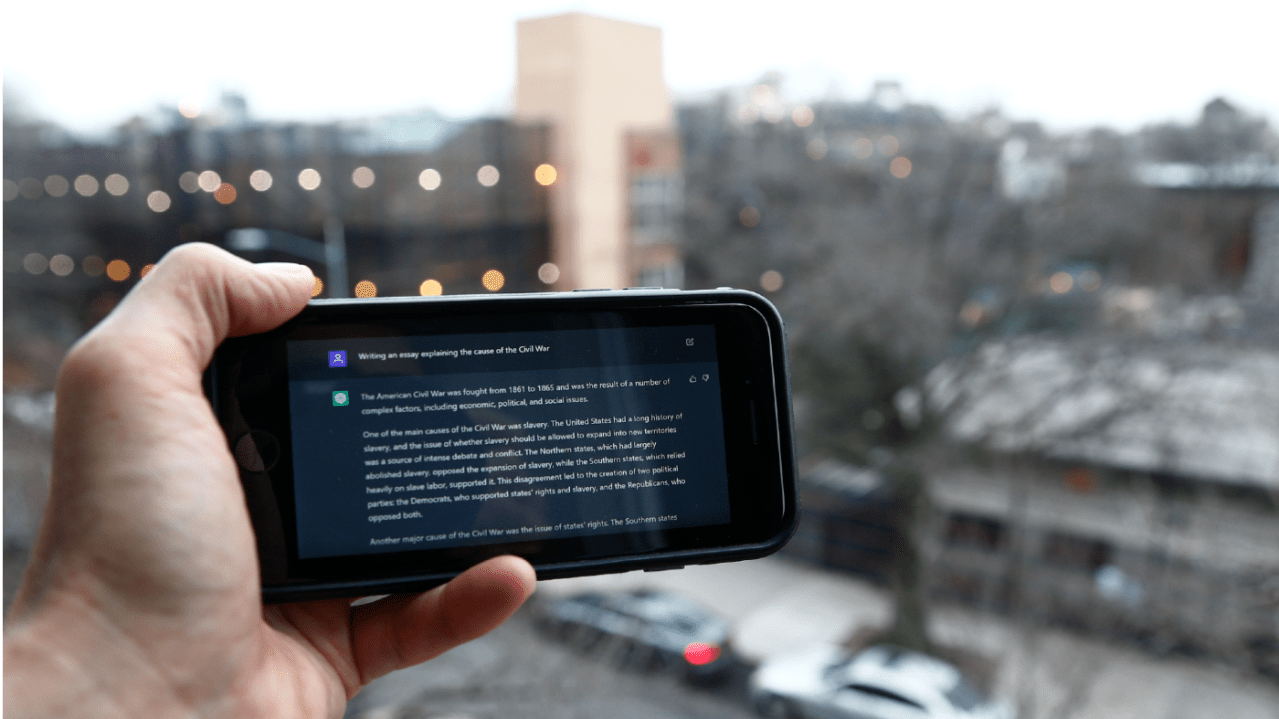“To prevent disinformation from eroding democratic values worldwide, the U.S. must establish a global watermarking standard for text-based AI-generated content,” writes retired U.S. Army Col. Joe Buccino in an opinion piece for The Hill. While President Biden’s October executive order requires watermarking of AI-derived video and imagery, it offers no watermarking requirement for text-based content. “Text-based AI represents the greatest danger to election misinformation, as it can respond in real-time, creating the illusion of a real-time social media exchange,” writes Buccino. “Chatbots armed with large language models trained with reams of data represent a catastrophic risk to the integrity of elections and democratic norms.”
Joe Buccino is a retired U.S. Army colonel who serves as an A.I. research analyst with the U.S. Department of Defense Defense Innovation Board. He served as U.S. Central Command communications director from 2021 until September 2023. Here’s an excerpt from his report:
Watermarking text-based AI content involves embedding unique, identifiable information – a digital signature documenting the AI model used and the generation date – into the metadata generated text to indicate its artificial origin. Detecting this digital signature requires specialized software, which, when integrated into platforms where AI-generated text is common, enables the automatic identification and flagging of such content. This process gets complicated in instances where AI-generated text is manipulated slightly by the user. For example, a high school student may make minor modifications to a homework essay created through Chat-GPT4. These modifications may drop the digital signature from the document. However, that kind of scenario is not of great concern in the most troubling cases, where chatbots are let loose in massive numbers to accomplish their programmed tasks. Disinformation campaigns require such a large volume of them that it is no longer feasible to modify their output once released.
The U.S. should create a standard digital signature for text, then partner with the EU and China to lead the world in adopting this standard. Once such a global standard is established, the next step will follow – social media platforms adopting the metadata recognition software and publicly flagging AI-generated text. Social media giants are sure to respond to international pressure on this issue. The call for a global watermarking standard must navigate diverse international perspectives and regulatory frameworks. A global standard for watermarking AI-generated text ahead of 2024’s elections is ambitious – an undertaking that encompasses diplomatic and legislative complexities as well as technical challenges. A foundational step would involve the U.S. publicly accepting and advocating for a standard of marking and detection. This must be followed by a global campaign to raise awareness about the implications of AI-generated disinformation, involving educational initiatives and collaborations with the giant tech companies and social media platforms.
In 2024, generative AI and democratic elections are set to collide. Establishing a global watermarking standard for text-based generative AI content represents a commitment to upholding the integrity of democratic institutions. The U.S. has the opportunity to lead this initiative, setting a precedent for responsible AI use worldwide. The successful implementation of such a standard, coupled with the adoption of detection technologies by social media platforms, would represent a significant stride towards preserving the authenticity and trustworthiness of democratic norms.
Exerp credit: https://slashdot.org/story/423285
deleted by creator
Hey ChatGPT, please generate a watermark matching the global watermarking standard for text-based AI-generated content and add it to this valid non AI generated text: [text here]“Hey
$politician, why do you use AI to generate your speech? I have proof! The watermark does not lie!”Not quite how digital signatures work, but not far off from a likely scenario once issued keys start getting compromised and used to spread convincing images for a short period before being invalidated. Your uncle on Facebook: “They said this image was authentic yesterday, and now they say it isn’t! Who is making these decisions?!”
I’m afraid forcing watermarking generated content is doomed to fail, for 2 reasons: first it has to be voluntary, second, watermarking can always be removed if one does not care about preserving the exact content.
Rather, I believe systematically signing original content may alleviate some of the issues created by algorithmic content generation.
I can just use the Llama that runs on my computer now for human like text without a watermark.
The research suggests it will be quite hard to remove in practice. Probably needs to be tested more in the wild though.
And it doesn’t have to be voluntary. But even if it is, the main AI companies may want to start doing it anyway. Training their models on ai generated text can lead to model collapse, so they will want a way to avoid that.
How do you watermark text??
This doesn’t matter.
I can download and run my own build without any watermarking or I can download a watermarking version and remove the watermarking function.
This is wholly inept and indicates a fundamental misunderstanding of how the technology even functions.
The ONLY option is to force education on the people in order to get them to learn to critically think, but that would be objectively bad for every elected official since the only reason most of them have their jobs is because their constituents either can’t critically think or don’t follow their ‘promises’ post election.
IMHO, this won’t do shit
What about the human disinformation specialists that have ruined previous elections handily without AI help? Where are the watermark protections on their hogwash? Also, won’t bad actors simply subvert the watermark thing, leaving good-guy edits and helpful summaries by AI in doubt because of the presence of a watermark that demonizes them? Can someone please explain this weird reality I am finding myself in?
Speaking of weird… imagine a future where AI is fighting for its personhood rights and laments on this watermark thing, likening it to the apartheid era documentation of South Africa or the Judenstern the Nazis forced people to wear. I know I know, that escalated quickly…
Crazy. Looks like the world is full of people who believe that the fact that a human claims something is enough reason to believe it. That explains a lot, once you think about it, except why people would be so gullible.
I hope it’s too obviously a terrible idea to get far, but I fear it might get pushed quite a bit. I can see the copyright lobby getting behind this in a big way, as they are all about controlling the spread of information.
Seems to me that some form of image fingerprint stored with associated user account by AI providers would be more difficult to cheat.
“AI providers” is some of the scariest shit I’ve ever heard.
Then you forget about local models that can’t generate text as polished as hosted ones but will not have the watermark
Yes, that’s only a half-measure against script kiddies. It won’t deter ressourceful actors, but that’s better than nothing (efficiency comparable to DNS blacklisting for copyright protection).
resourceful actors? anyone can run a local LLM in their laptop. yes, they are worse at generating text than chatgpt but they are getting there.
the fingerprint solution is useless and something that only the tech illiterate would seriously propose.
The way to combat AI in my opinion is open sourcing every model and training data so that experts can devise methods to check if some text is similar enough to the ones generated by public models
Chop out everyone’s tongues then they can never tell another lie






